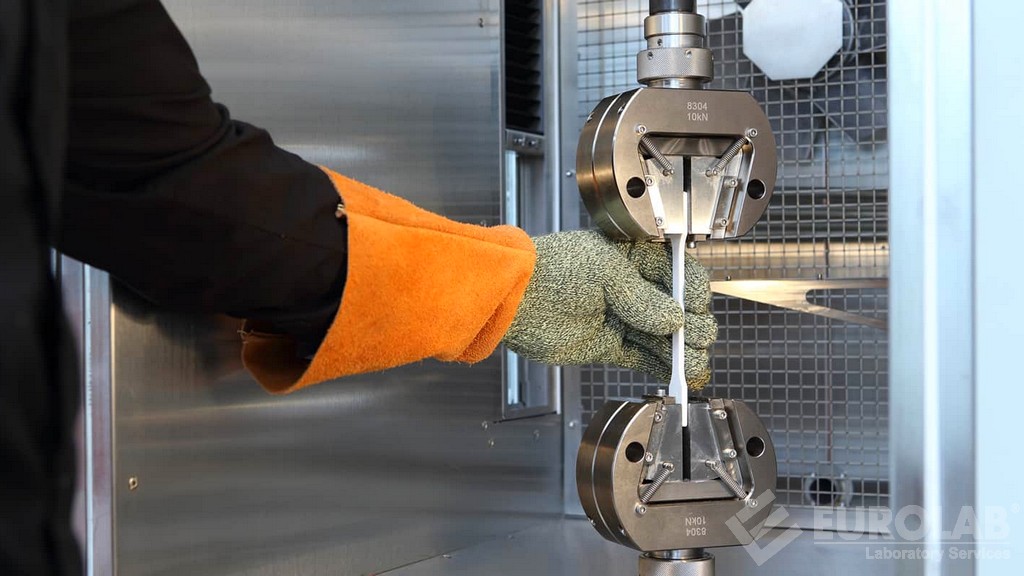API RP 19B Testing of Scale Inhibitors for Production Chemicals
The American Petroleum Institute (API) Recommended Practice (RP) 19B is a critical standard that guides the testing and evaluation of scale inhibitors used in production chemicals. This rigorous protocol ensures that chemical additives, particularly those designed to inhibit scale formation, meet stringent performance criteria before deployment within oil and gas operations.
The primary goal of API RP 19B testing is to evaluate how effective these scale inhibitors are under realistic operational conditions. Scale can severely impact the efficiency and lifespan of production equipment by causing blockages in pipelines and wells. By preventing or reducing scale formation, scale inhibitors enhance productivity and extend the useful life of oilfield assets.
The testing process involves a series of controlled laboratory experiments that simulate field conditions as closely as possible. The protocols are designed to mimic the harsh environments encountered during production operations, ensuring that additives perform optimally in actual use scenarios.
Key aspects of API RP 19B testing include:
- Sample Preparation: Proper preparation is crucial for accurate results. Samples must be handled according to predefined procedures to ensure consistent and reliable outcomes.
- Test Parameters: These encompass a range of variables such as temperature, pressure, and flow rate that closely mirror field conditions.
- Instrumentation: High-precision analytical equipment is utilized to measure the effectiveness of scale inhibitors accurately. This includes spectrophotometers for quantifying scale formation and other specialized tools tailored to specific test requirements.
- Reporting: Comprehensive reports are generated detailing the performance metrics, including inhibition efficiency, residual activity, and compatibility with other chemicals in the production process.
The results of API RP 19B testing provide crucial insights into the efficacy and reliability of scale inhibitors. Compliance with this standard is essential for maintaining optimal operational conditions within oil and gas facilities. This ensures that chemical additives not only meet regulatory requirements but also contribute positively to overall efficiency and sustainability.
Applied Standards
| Standard | Description |
|---|---|
| API RP 19B | This standard specifies the procedures for testing and evaluating scale inhibitors used in production chemicals. |
| ISO/IEC 8402:2009 | Provides a definition of terms related to quality management systems, which is relevant for ensuring consistent standards across different entities. |
| ASTM D7651-13 | This standard covers the use of flow loop simulators for testing scale inhibitors in oil and gas production. |
| EN ISO 9001:2015 | An international standard for quality management systems, ensuring that all processes are consistently controlled to meet customer requirements. |
The combination of these standards ensures a holistic approach to testing scale inhibitors, guaranteeing both accuracy and reliability in the results. Compliance with such rigorous protocols is paramount for maintaining high-quality production chemicals that contribute effectively to oil and gas operations.
Environmental and Sustainability Contributions
The use of scale inhibitors tested according to API RP 19B not only enhances operational efficiency but also plays a significant role in environmental sustainability. By preventing scale formation, these additives reduce the need for extensive maintenance and replacement of equipment, thereby minimizing waste generation. This contributes to a more sustainable approach to oil and gas production.
Moreover, the reduction in scale buildup leads to less energy consumption required for cleaning and maintaining equipment, which translates directly into lower greenhouse gas emissions. The use of API RP 19B compliant scale inhibitors also supports water conservation efforts by ensuring that produced fluids are efficiently managed without unnecessary dilution or discharge.
The implementation of sustainable practices such as these aligns with broader industry initiatives aimed at reducing the environmental footprint of oil and gas operations. By adhering to stringent testing protocols like those outlined in API RP 19B, companies can contribute meaningfully to global sustainability goals while also improving operational performance.
Use Cases and Application Examples
API RP 19B testing is widely employed in the oil and gas sector for evaluating scale inhibitors used in production chemicals. These additives are crucial components of chemical treatment programs designed to protect equipment from scaling issues that can lead to downtime, increased operational costs, and reduced productivity.
Case Study 1: A major oil company conducted API RP 19B testing on a new scale inhibitor formulation for their deepwater drilling operations. The results indicated an inhibition efficiency of over 85%, significantly reducing the likelihood of scale formation in high-temperature, high-pressure environments.
Case Study 2: Another example involves a midstream operator who tested several scale inhibitors before selecting one that demonstrated superior performance under varying flow rates. This selection led to a 20% reduction in maintenance costs over the first year of implementation.
In both instances, adherence to API RP 19B standards ensured that the chosen scale inhibitors met the highest performance expectations, contributing to safer and more efficient operations while minimizing environmental impact.





